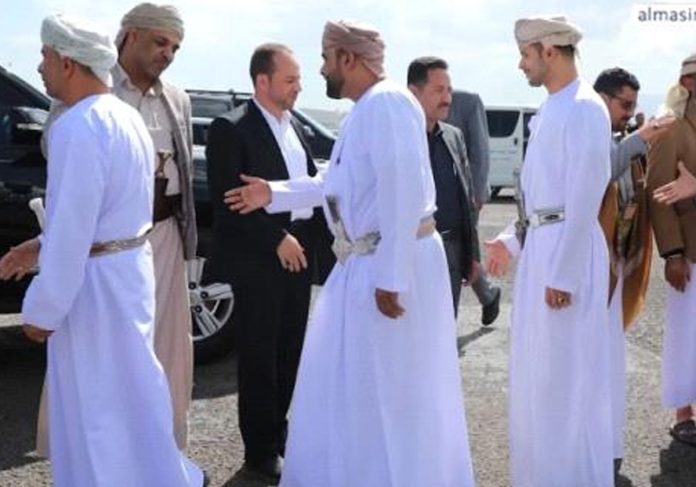
Watan – In a significant diplomatic move, Oman has emerged as a key mediator, facilitating a visit by a Houthi delegation to Riyadh. This visit, the first of its kind since 2015, marks a potential turning point in the Yemen conflict, which began with Operation Decisive Storm against the Houthis.
The head of the Houthi-affiliated Supreme Political Council, Mehdi Al-Mashat, recently met with an Omani delegation in Yemen’s capital, Sana’a. This meeting set the stage for the upcoming journey to Riyadh, a trip that follows a Saudi delegation’s visit to Sana’a five months prior. Central to these discussions is the pursuit of a comprehensive ceasefire in Yemen, laying the groundwork for a lasting political solution that garners the support of all Yemeni factions.

Observers note a shift in the Gulf’s stance, particularly from Saudi Arabia and the UAE, moving away from their traditionally hostile approach towards Iran. This change aligns with their efforts to normalize relations with Israel, which has concurrently softened its stance on perceived Iranian threats. Many attribute Oman’s proactive mediation to the dire need to conclude a war that has wreaked havoc on Yemen, leading to a severe humanitarian crisis.
Despite some criticisms from UAE-backed Yemeni sources, Oman’s peace initiatives have garnered widespread praise on social media platforms. Tweets under the hashtag “Oman creates peace in Yemen” highlight the sultanate’s consistent efforts. However, challenges persist, especially with entities like the UAE-backed Southern Transitional Council expressing discontent with Oman and Saudi Arabia’s peace endeavors.
The unfolding events raise a pressing question: Can Oman’s mediation efforts pave the way for lasting peace in Yemen, especially given the complexities of regional politics?